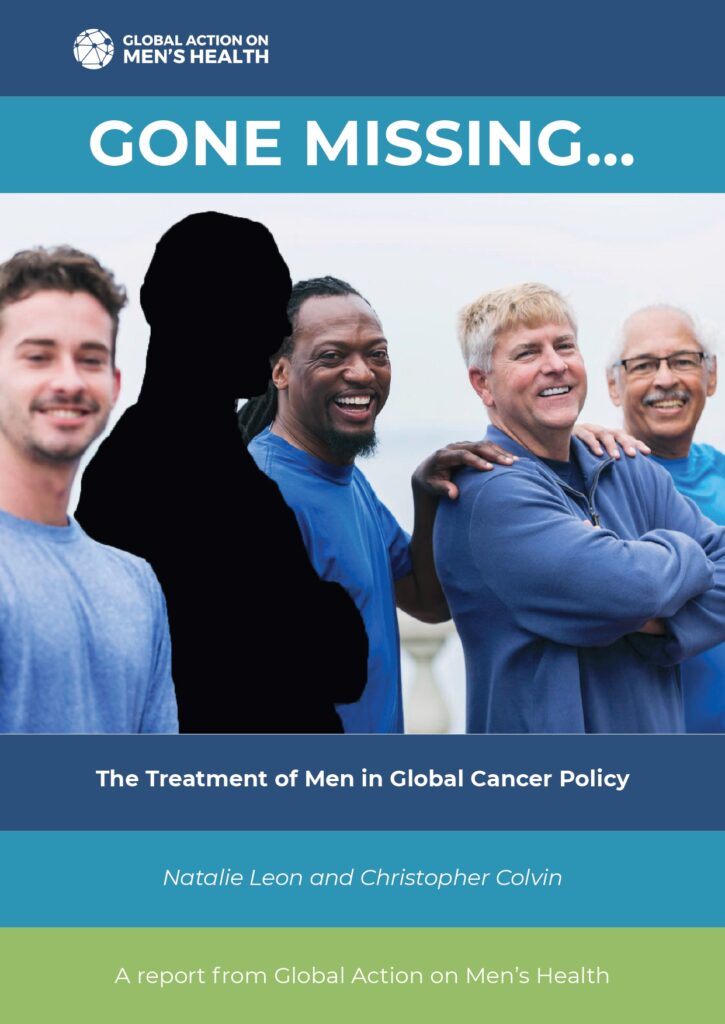Gone Missing: The treatment of men in global cancer policy
Despite being more likely than women to develop and die from cancer, men are missing from global, regional and national cancer policies. Global Action on Men’s Health is leading the call for a new approach.
Men’s excess burden of cancer is clear. Globally, one in eight men and one in 11 women die from cancer by the age of 74. The age-standardised cancer incidence rate for males is 207 compared to 178 for females; the respective mortality rates are 120 and 84.
The scale of the problem requires a robust and systematic response from policymakers. But a new study, published today by Global Action on Men’s Health to mark International Men’s Health Week (12-18 June 2023), shows that policymakers have so far failed to rise to the challenge.
Gone Missing: The treatment of men in global cancer policy, written by Dr Natalie Leon and Professor Christopher Colvin, examines 28 policy reports from the World Health Organisation, the European Union and other global, regional and national organisations. The report documents that men’s health needs – particularly the needs of men who are marginalised because of the their race, ethnicity, income, sexual orientation and other factors – are largely absent from cancer-related policies at all levels. Where issues of gender are considered, the focus is mostly on women.
The only significant areas where men’s issues are more prominent concern prostate cancer and HPV vaccination. But even here, there continues to be a lack of consistency in approach. More countries are now opting for gender-neutral HPV vaccination, for example, but the World Health Organisation still does not recommend this approach.
The publication of Gone Missing marks the start of an advocacy campaign by GAMH. This will include making the case for overdue policy change by developing the evidence base, building on best practice and assembling coalitions with other organisations working on men’s or cancer issues. ‘It is critical to encourage organizations to make presenting data for men, women, and people who do not fit the gender binary when reporting key cancer patterns if we are to address the gendered needs of each group,’ said Dr. Derek M. Griffith, Chair of GAMH and Director at Georgetown University’s Center for Men’s Health Equity.
GAMH’s call to action will include including men in work on addressing inequalities in cancer outcomes, rolling out gender-specific approaches to changing men’s risky behaviours, improving men’s use of services, reviewing the case for prostate cancer screening, and introducing cancer policies that address men’s needs, including gender-neutral HPV vaccination.
Peter Baker, GAMH’s Director, said: “Men’s higher rates of cancer around the world are not inevitable. They represent a major health inequity which can and must be tackled. The first step is the introduction of global and national policies on cancer that take men and all genders fully into account. GAMH is leading the call for this new approach. When it comes to cancer, along with many other health problems, men can no longer be ignored.”
14 June 2023


